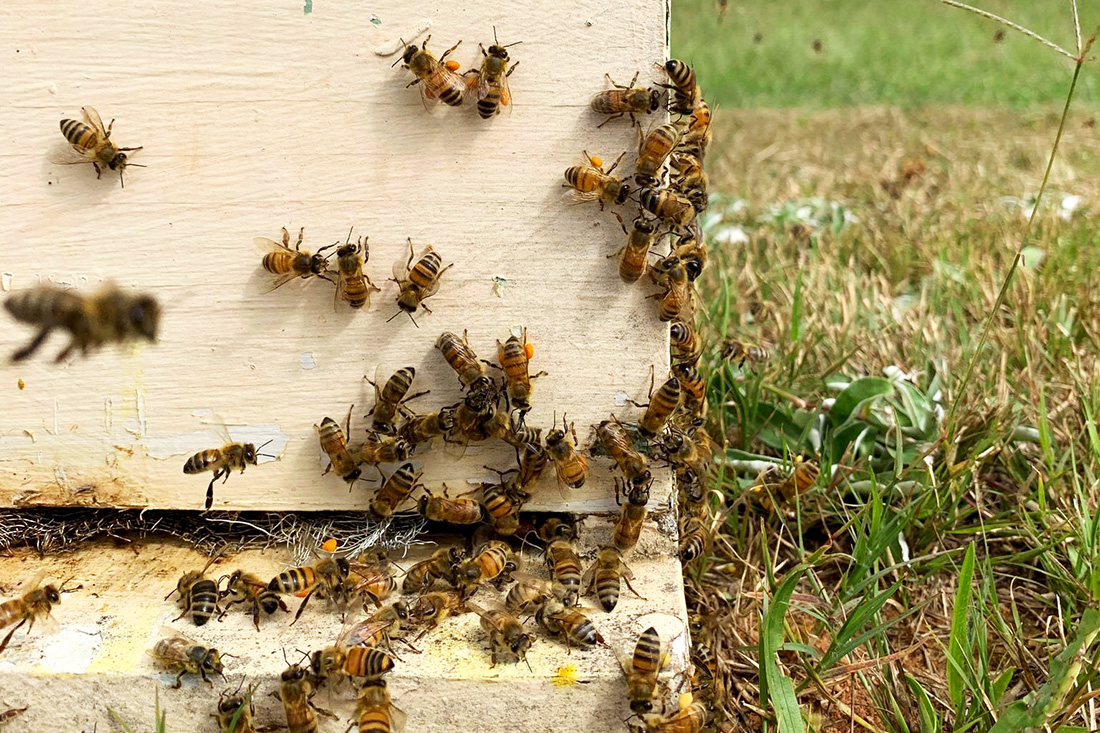Foot-and-mouth disease poses a threat to the United States
because
of the high volume of traffic between Europe and the United
States,
says a University of Georgia expert.
The latest outbreak of foot-and-mouth disease began in
mid-February
and threatens much of Europe. The disease rarely harms
humans,
but humans can transport the disease.
Because of this, the European outbreak has been the cause of
great
concern in the United States, said Ronnie Silcox, an Extension
Service animal scientist with the UGA College of Agricultural
and Environmental Sciences.
Foot-and-mouth disease has been a problem in many parts of the
world for many years, Silcox said. Outbreaks have been reported
in South America, Asia and Africa. Because the outbreaks were
in less developed parts of the world, though, the spread of the
disease was limited.
The United States has not had a case of foot-and-mouth disease
since 1929.
Disease Harsh, Not
Fatal
But the disease is highly contagious. It affects any
cloven-footed
animal. The greatest economic threat comes from infected
livestock,
such as cattle, hogs and sheep.
Initially, the disease has a harsh effect on the animal. It runs
a high temperature and develops blisters around the mouth and
tongue and on the hooves, Silcox said. The animal doesn't eat
because of the blisters in the mouth.
"The big thing you'd see with this disease is that the
animal
will lose weight," Silcox said. "And in dairy cattle,
milk production drops tremendously. It can take several months
for the animal to regain the weight.
The dairy cattle may never return to production levels reached
before the disease, Silcox said.
Foot-and-mouth disease isn't normally fatal, but it can cause
death in very young animals. The disease usually runs its course
in two to three weeks, Silcox said.
When an animal becomes infected, though, it runs a higher risk
of catching another illness, he said. Female animals also have
a higher risk of abortions.
Though the disease is highly contagious, the virus that causes
it is fragile, Silcox said. It can't stand a range of conditions.
Heat, for instance, easily kills the virus.
Strict Regulations
"It would be a terrible disease if it got started in the
United States because it has such a serious impact on the
livestock,"
Silcox said. "Because of this, regulations on imports and
the handling of products from countries with confirmed cases have
been in place in the United States for years. We're pretty
careful
about what we bring into the country."
To protect the United States from this latest outbreak of
foot-and-mouth
disease, the U.S. Department of Agriculture has banned imports
of farm products from Europe that may transmit the disease.
Security
has also been heightened on travelers and cargo coming from
Europe.
"If you're doing any international traveling," Silcox
said, "don't bring any agricultural products into the
country."
For further information on foot-and-mouth disease, call the USDA
at 1-800-601-9327. Or check the Internet at (www.aphis.usda.gov).
Published on 03/28/01
Foot-and-mouth a Threat to U.S. Livestock
Brad Haire is the former news editor with the University of Georgia College of Agricultural and Environmental Sciences.
Experts/Sources:
 CAES News
CAES News
CAES leads global project to boost local food systems in the United Arab Emirates
08/11/25 Jordan Powers
Each year, more than 1.3 billion tons of edible food is lost or wasted across the global supply chain — much after harvest but before it ever reaches a plate. Now, researchers at the University of Georgia College of Agricultural and Environmental Sciences and partners across North America are working to help reduce that loss in one of the most challenging agricultural environments in the world: the United Arab Emirates. Through the new international collaboration, U.S.-based postharvest specialists partnered with agricultural leaders in Abu Dhabi to strengthen local food systems, improve crop handling and storage, and train the next generation of Extension professionals — all with the goal to keep more food fresher, longer.
 CAES News
CAES News
Outstanding 4-H youth and supporters celebrated at Georgia 4-H State Congress
08/08/25 Josie Smith
Georgia 4-H recognized the achievements of youth participants, adult leaders and community supporters during the annual 4-H State Congress, held July 23–26 at the Crowne Plaza Ravinia in Atlanta. This weeklong capstone event featured state-level competition in Project Achievement and Leadership in Action for top 4-H’ers from across the state.
 CAES News
CAES News
Community-driven agriculture grows more than just produce
08/07/25 Emily Cabrera
discover.caes.uga.edu
In Winterville, Georgia, a small market grew into a movement. Meet the people behind the Marigold Collective, where farmers, volunteers and neighbors band together to transform fresh food into shared growth. With support from University of Georgia Cooperative Extension, Marigold Collective is working to make local food more accessible while creating economic opportunities for small agribusinesses.
 CAES News
CAES News
Keeping your tomato plants healthy: Managing common pests and diseases of homegrown tomatoes
08/06/25 Emily Cabrera
cultivate.caes.uga.edu
We have already ranked the best tomato cultivars for stacking high on a slice of bread and covered the essentials of pruning and staking to tame those wild, vining plants. Now comes the gritty middle of the growing season — when the heat bears down and the battle against pests, diseases and plant stress ensues. Whether you have only just started harvesting or are already preparing for a second planting to carry you into fall, Georgia’s hot, humid climate creates the perfect environment for problems.
 CAES News
CAES News
Scientists identify high viral loads, mite resistance as key factors in recent honey bee losses
08/04/25 Jordan Powers
Earlier this year, commercial beekeepers across the U.S. faced unprecedented winter colony losses, with some reporting over 60% of hives perishing — more than double the typical overwintering loss rates. Hobbyists and sideliners — those who keep bees as a secondary source of income — also saw catastrophic declines, with total economic impacts to beekeepers estimated at over $600 million. Now, scientists are linking the losses to high viral loads and mite resistance as they work to develop solutions to protect the industry moving forward.
 CAES News
CAES News
Cultivating Georgia-focused scholars through New Faculty Tour
08/01/25 Roy Parry
outreach.uga.edu
A group of new University of Georgia faculty members will leave Aug. 4 on a five-day trip across the state as part of the 2025 UGA New Faculty Tour, designed to help them connect their research and expertise to the needs and opportunities of rural communities and show them how deeply their university is tied to Georgia. Traveling through 45 counties and making 19 total stops in 15 cities, the tour highlights the state’s rich economic, geographic, social, and cultural diversity — offering faculty insight into how their work can support and strengthen communities across Georgia.
